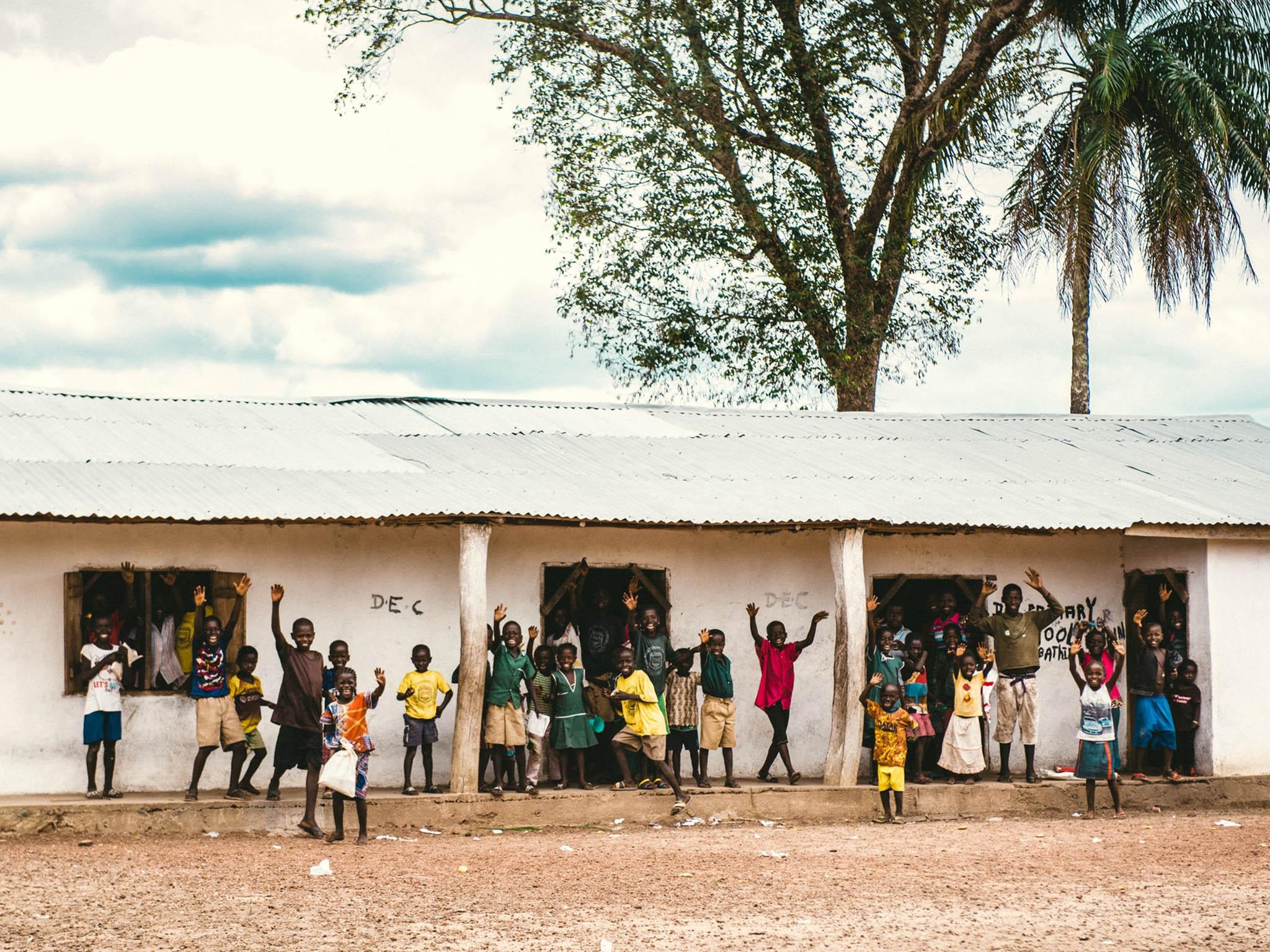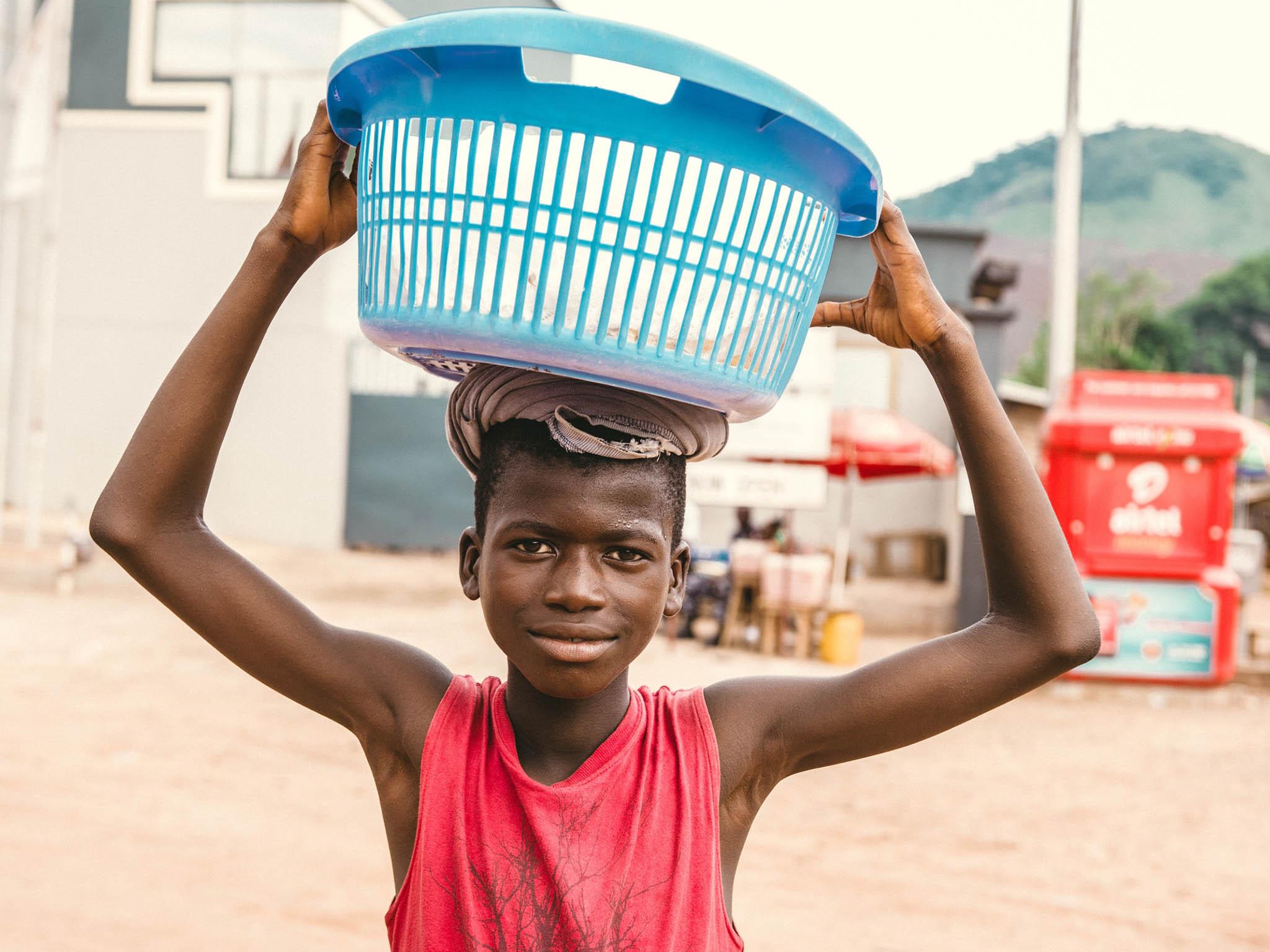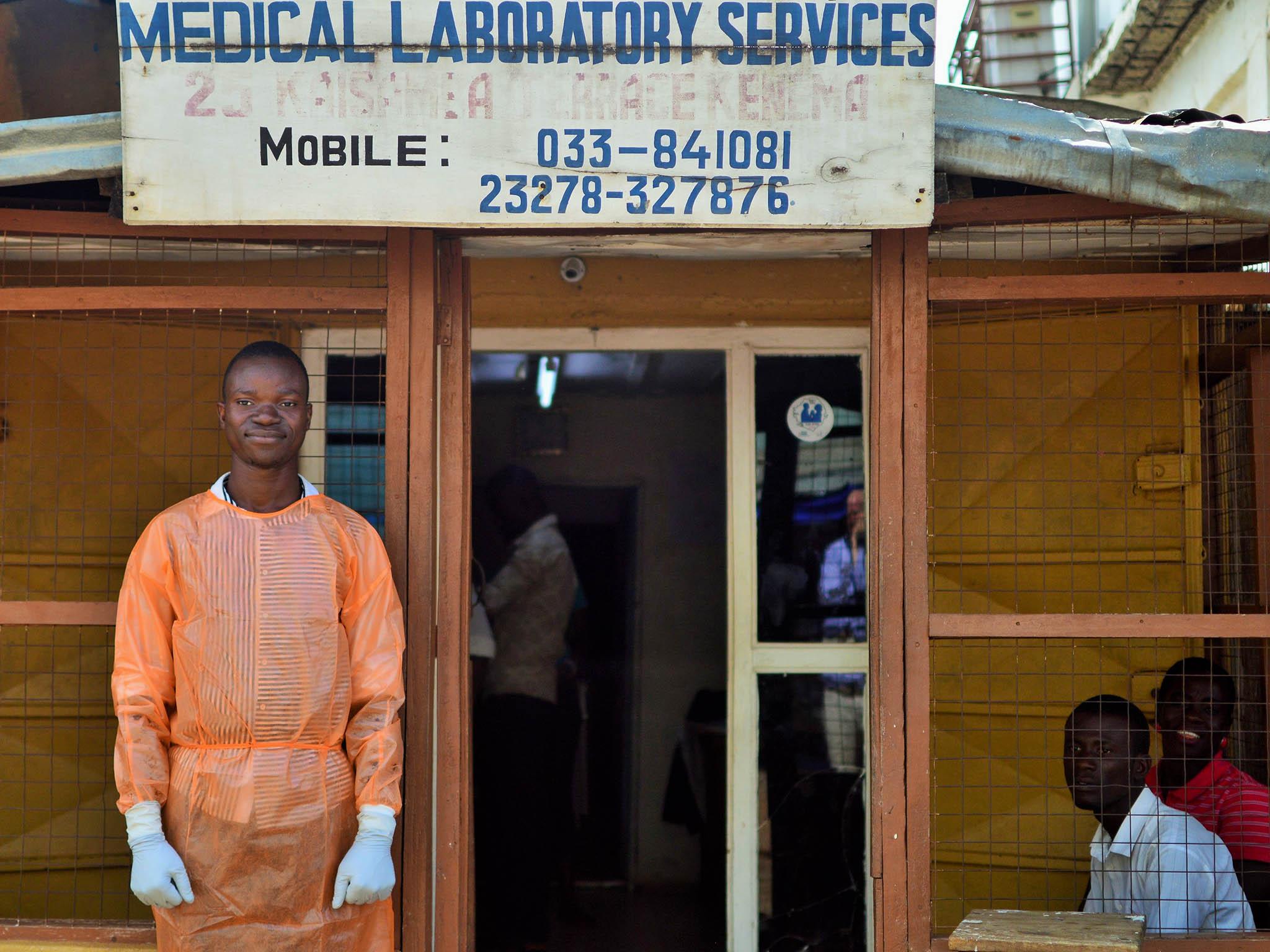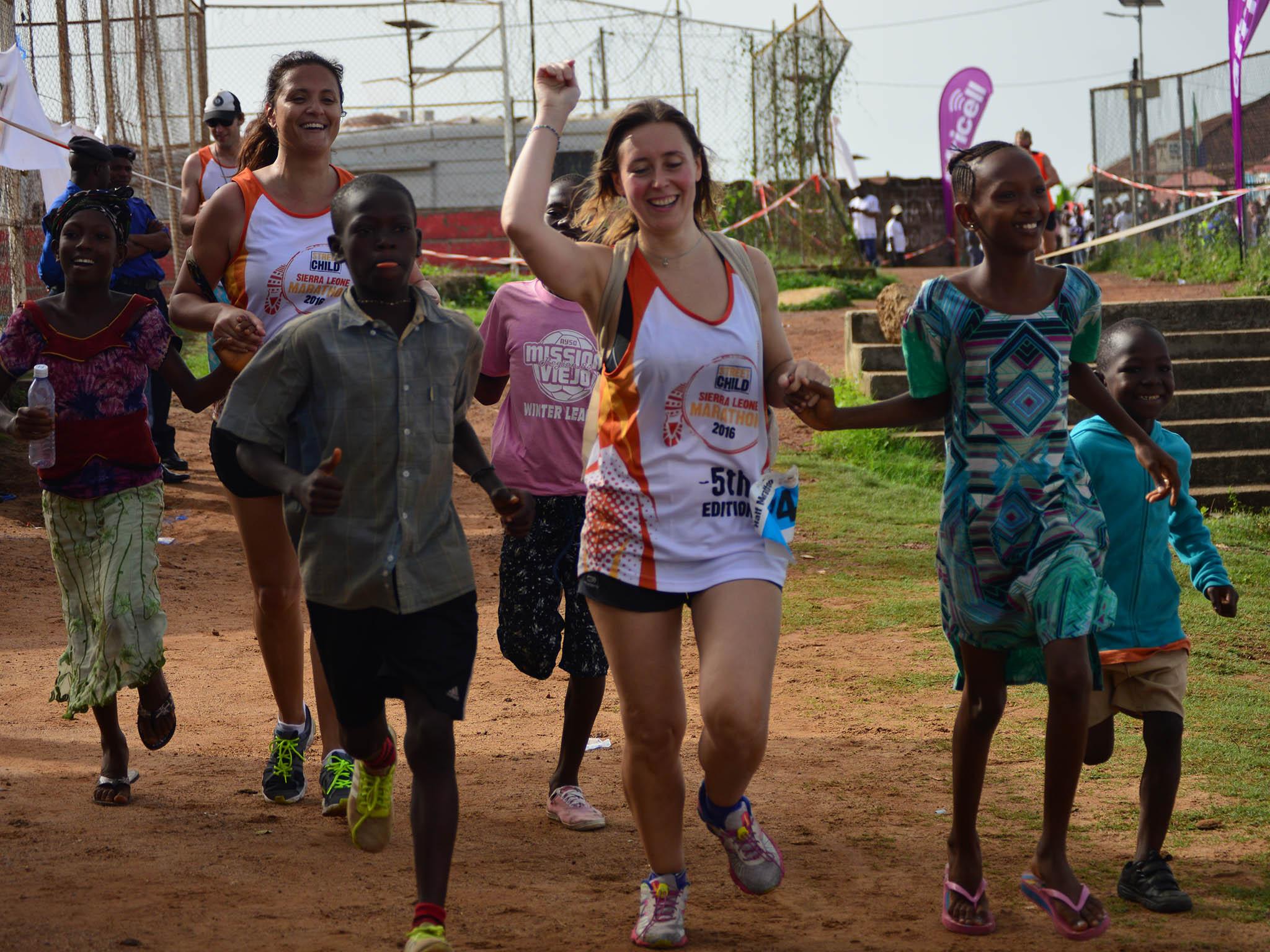Sierra Leone two years after Ebola: What does life look like now?
In the aftermath of the most widespread epidemic of Ebola in history, which began in February 2014, Liberia, Guinea and Sierra Leone are returning to normal life

Your support helps us to tell the story
From reproductive rights to climate change to Big Tech, The Independent is on the ground when the story is developing. Whether it's investigating the financials of Elon Musk's pro-Trump PAC or producing our latest documentary, 'The A Word', which shines a light on the American women fighting for reproductive rights, we know how important it is to parse out the facts from the messaging.
At such a critical moment in US history, we need reporters on the ground. Your donation allows us to keep sending journalists to speak to both sides of the story.
The Independent is trusted by Americans across the entire political spectrum. And unlike many other quality news outlets, we choose not to lock Americans out of our reporting and analysis with paywalls. We believe quality journalism should be available to everyone, paid for by those who can afford it.
Your support makes all the difference.Schools have reopened. During Ebola schools across the nation were forced to close to minimise the risk of contagion. Today, schools like this one - Sanda Magbalantor rural school - are open again. Ebola had a huge impact on education and many orphaned children, especially girls, are now too poor to go to school. NGOs like Street Child have been working hard to make sure that all children can access school and that no Ebola orphan is left behind, but there's a long road ahead.

Illiteracy contributed significantly to the spread of Ebola because people could not read the posters and advice warning about how to avoid infection. Education could have pre-vented such widespread contagion. As you drive across Sierra Leone today you see several new schools under construction or recently opened by NGOs keen to help ensure that all children have access to education. This school is being built in remote Kpondu village - the first place in Sierra Leone to contract the deadly Ebola virus. It is being fund-ed in memoriam by the family of UK journalist Kate Gross OBE. The school, built by UK NGO Street Child, will bring education to eight villages for the first time, helping to reduce the chances of future disease outbreaks.

Many orphaned teenage girls became pregnant after being abused during Ebola. Fatmata, 16, lost both her parents to Ebola in just one week. She was abused by a 43 year old man who promised to help her. He gave her none of the support he had offered but got her pregnant and then died of Ebola himself. She was left alone to care for her baby and younger siblings. Thanks to the support of Street Child she is now back in school but life is still tough for many of Ebola’s orphans.

Erikson, 25, looks after 11 Ebola orphans who are all the children of deceased relatives. He rides a motorbike taxi to try and generate enough money to care for these children. He had just finished his exams when his parents died. His dad had promised to fund him to go to university to do peace and conflict studies, but now that’s not possible. He still hopes to go to university one day but he says it won’t be anytime soon. Erikson is a survivor of Ebola himself and is part of an Ebola survivors football league which aims to help those who’ve been through the disease to share their experiences and help stop the stigma.

Many children now have a greater burden to earn money to supplement family incomes after breadwinners died during the epidemic. For some children this means helping out with petty trading after school. The worst cases see teenage girls forced out of school to engage in commercial sex.
Since Ebola, the ban on public gatherings has been lifted. The ban meant football teams could not play and children were unable to meet groups of friends. Thankfully, today children can play again - even if it is in tropical downpours like in this photo! This year Free-town Festival happened as usual, bars are full and football matches are well supported by enthusiastic crowds.

Trading has begun again, and communities that were quarantined during Ebola now have the chance to do business with their neighbours. Many households are now extended as aunts, uncles take on the care of nieces and nephews who lost their parents to Ebola. Overcrowding is a real problem for many poorer families, and many are struggling to provide food or school fees for their newly extended households. Business schemes run by charities like Street Child are helping families like this lady to start new businesses to ensure she can afford the right accommodation, feed her new family and send them to school.

Freedom of movement has been reintroduced and international visitors are starting to return. During Ebola, every journey involved several checkpoints where all passengers would have to wash their hands and have their temperatures checked. Today people can move about freely and the checkpoints have been removed. Hand washing has become a much more common since Ebola!

Douda is a survivor of Ebola. His father, a lab technician, contracted Ebola when testing others for the virus at a local treatment centre in Kenema. Douda lost his dad, mum and siblings to Ebola. Only his little brother Richard survived. Today he has taken on his father’s laboratory, he said: ‘‘Life is hard because people are fearful of the laboratory since Ebola, the stigma here still exists. We need to overcome that, then business will get better.’’ He dreams of becoming a scientist and says: ‘‘If I become a scientist I will give 80 percent of my income to charities like Street Child who helped me and Richard when we faced losing our house when our parents died.'’

Tourism is slowly returning to Sierra Leone. The beach resorts that were only frequented by NGO workers and medical staff during the Ebola epidemic are now starting to attract international visitors again. Rumour has it that the1980s Bounty advert was shot on Sierra Leone’s tropical beaches, which are some of the most beautiful in West Africa. The impact of Ebola on tourism was unsurprisingly catastrophic, and the country’s white sand, palm-lined shores are still quiet, so those who have made the journey often have the country’s paradise beaches to themselves.

Sierra Leoneans are a very open, warm and tactile people. During Ebola normal cultural practices like shaking hands were discouraged for fear of contagion. There was an un-easiness about human contact that felt very unnatural. Friends and family were unable to show affection to each other through hand-holding, hugging and hand-shaking. Today, people are shaking hands again. During the Sierra Leone marathon, kids lined the streets to hi-five runners once more, and local people and international visitors held hands. It’s a very welcome sign that the fear of Ebola is on the wane.

Rebecca, 18, from Freetown in Sierra Leone, became pregnant during the Ebola epidemic after losing most of her family and needing to find money to survive. She said: ‘‘When Ebola broke out. I lost my mother, my sister, my uncle and most of my family members. Then I lost my father. Girls who don’t have anyone looking after them, we’re the ones that get pregnant. One boy said he wanted me. He would offer me 5000 Leones [80p] and it felt like a lot of money. After a while I got preg-nant. And when you get pregnant, they go wherever they go and leave you with the consequences.
‘‘I don’t know too much about bringing up a child. My Mum’s dead, My Dad’s dead and there’s no one to help look after my baby. So, wherever I am, my son has to be.’’ Rebecca and her baby are now alone and she is unable to go to school because she can’t afford it. She is desperate to have an education because she sees it as vital to her future. She said: ‘‘Some days I see girls wearing their uniforms, going to school and I feel that I want to be like them. I want to learn but I don’t have anyone to help me. Education is sweet. If you encourage girls to learn, support them with everything they need, they won’t end up on the streets. Girls needs an education. I want to become a pilot. If I became a pilot, I would dress in my pilot’s uniform and I would come and tell girls: ‘you see, when girls learn they can make something of their future.’ That’s what makes me want to be a pilot. But I don’t have someone to help me learn.’’

Sierra Leoneans are no strangers to tragedy. The Ebola epidemic followed on from a violent civil war that ended in 2002 and the country is still healing from the scars of both. The resilience of peo-ple who suffered during the civil war and also survived Ebola is extraordinary. Some of these footballers all had limbs amputated during the civil war and are determined to live life to the full in spite of what they’ve been through. Alha Ji, a member of the football team, who also ran the 5km as part of the Sierra Leone Marathon said: ‘Sport brings life, it changes life. That’s why football and the marathon are so important. I feel I belong and it’s helping to change perceptions of disability here’.
Street Child’s Girls Speak Out appeal aims to help 20,000 children go back to school after Ebola. All donations to the appeal are being doubled by UK government until 17th July 2016. www.street-child.co.uk/donate
Join our commenting forum
Join thought-provoking conversations, follow other Independent readers and see their replies
Comments